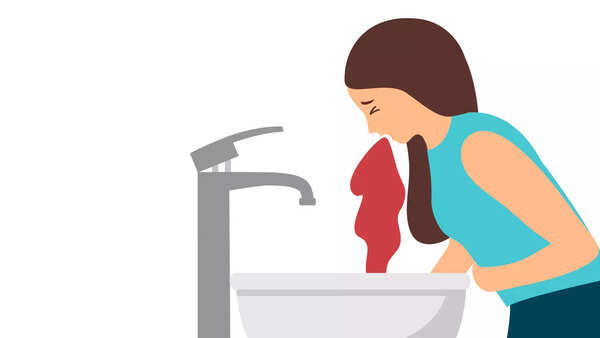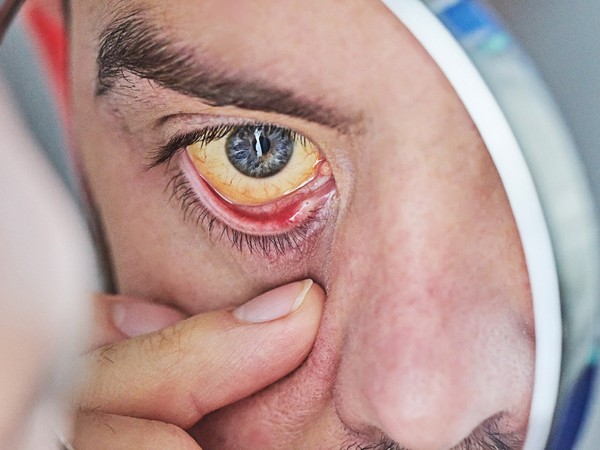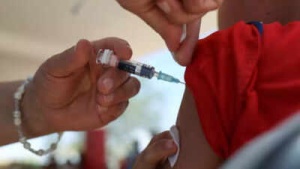Liver diseases are becoming increasingly prevalent worldwide, with alarming increases in conditions like non-alcoholic fatty liver disease (NAFLD), hepatitis, and cirrhosis. A 2023 report highlighted a significant surge in liver-related deaths over the past decade, often attributed to lifestyle choices and delayed diagnoses.
What makes liver disease particularly dangerous is its silent progression. It often advances without noticeable symptoms until reaching a critical stage. Early detection through recognizing warning signs is therefore paramount.
If you experience any of the following symptoms, seek immediate medical attention.

Vomiting blood, or hematemesis, is a significant red flag. It often signals serious liver disease, especially cirrhosis. The blood might appear bright red or resemble coffee grounds. This occurs due to ruptured varices, which are enlarged veins in the esophagus or stomach, frequently linked to advanced liver conditions like cirrhosis. The liver's compromised ability to regulate blood flow can lead to pressure buildup in the portal vein system. Immediate medical intervention is crucial to prevent severe blood loss and potential shock.

While often associated with respiratory issues, difficulty breathing can also indicate severe liver disease. Experiencing shortness of breath or feeling unable to get enough air is a critical symptom. Individuals with chronic liver conditions may develop fluid buildup in the abdomen (ascites) or lungs (hepatic hydrothorax), which can compress the diaphragm, hindering breathing. Anemia, resulting in reduced oxygen-carrying capacity due to internal bleeding, can also contribute. Prompt medical evaluation is essential.
If stools appear black, tarry, or unusually dark, it's a significant warning sign. This condition, known as melena, typically indicates bleeding in the upper digestive tract. Internal bleeding from ruptured varices or ulcers, often exacerbated by the liver's impaired ability to produce clotting factors, can cause this. The stool might also be sticky and have a foul odor. Immediate action is vital to identify and control the source of bleeding.
Experiencing unusual confusion, disorientation, or difficulty staying awake should never be ignored. These symptoms may point to hepatic encephalopathy, a brain dysfunction resulting from liver failure. This occurs when the liver fails to adequately filter toxins like ammonia from the blood. These toxins accumulate, impairing cognitive function. Immediate medical intervention is crucial to manage toxin levels and prevent irreversible brain damage.

Yellowing of the eyes and skin, known as jaundice, is a critical indicator. Jaundice is a key sign of liver dysfunction, particularly when it appears suddenly. It arises when the liver cannot effectively process bilirubin, a waste product from red blood cells. While jaundice can stem from other causes, new or worsening cases without prior symptoms might suggest serious liver disease. If accompanied by other signs like fatigue or abdominal pain, prompt medical care is essential.
Newer articles
Older articles
 Esha Gupta Sets Record Straight: Actress Addresses Hardik Pandya Dating Rumors
Esha Gupta Sets Record Straight: Actress Addresses Hardik Pandya Dating Rumors
 Google Maps to Boost Navigation Accuracy with Fused Orientation Provider API
Google Maps to Boost Navigation Accuracy with Fused Orientation Provider API
 Global Vaccination Rates Plunge: Millions of Children Now Vulnerable to Preventable Diseases
Global Vaccination Rates Plunge: Millions of Children Now Vulnerable to Preventable Diseases
 Rishabh Pant: Greg Chappell Hails India Star as Cricket Revolutionary
Rishabh Pant: Greg Chappell Hails India Star as Cricket Revolutionary
 Skin Cancer Alert: How to Identify Suspicious Moles and Early Warning Signs
Skin Cancer Alert: How to Identify Suspicious Moles and Early Warning Signs
 Gavaskar Calls for Kuldeep Yadav's Inclusion in Second Test Amid Bumrah Fitness Concerns
Gavaskar Calls for Kuldeep Yadav's Inclusion in Second Test Amid Bumrah Fitness Concerns
 Is Daily Pooping a Must? Understanding Bowel Regularity and When to Worry
Is Daily Pooping a Must? Understanding Bowel Regularity and When to Worry
 Suryakumar Yadav's Sports Hernia: Understanding the Injury, Recovery, and Risk Factors for Athletes
Suryakumar Yadav's Sports Hernia: Understanding the Injury, Recovery, and Risk Factors for Athletes
 Vijay Sethupathi Apologizes Amid Controversy Over Son Surya's Debut Film 'Phoenix' and Alleged Video Removal Pressure
Vijay Sethupathi Apologizes Amid Controversy Over Son Surya's Debut Film 'Phoenix' and Alleged Video Removal Pressure
 Install Baccarat Hack Tool: The Secret to Winning
Install Baccarat Hack Tool: The Secret to Winning